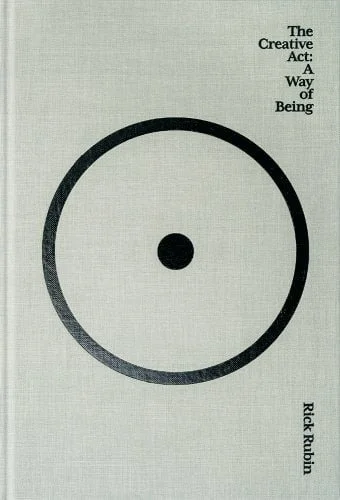RICK RUBIN, PERFECTION, AND THE LEANING TOWER OF PISA
Rick Rubin is an icon in the record industry. His discography is as diverse as it is legendary. At 17, he started Def Jam Records and almost single-handedly launched the Hip Hop genre by finding and producing artists like the Beastie Boys, Run-DMC, Public Enemy, and LL Cool J.
Since then, he has become THE producer for a wide rage of performers including Tom Petty, Adele, Johnny Cash, Red Hot Chili Peppers, Kanye West, Aerosmith and the Chicks
Believe it or not, Rubin can't read music, play an instrument, or even operate a soundboard, but that hasn't stopped him from winning NINE Grammys and being named to Time Magazine's 100 Most Influential People in the World.
In his new book, The Creative Act: A Way of Being, Rubin delves deep into not just the creative process, but on living a creative life.
He states, "I set out to write a book about what to do to make a great work of art. Instead, it revealed itself to be a book on how to be."
In that way, you and Rick are the same. You both produce music every day. You indulge in the pursuit of creating and creativity, using it as a metaphor and vehicle to create a better life, even when falling short.
Rubin shares his thoughts on falling short: "When the work has five mistakes, it's not yet completed; when it has eight mistakes it might be."
In a subsequent podcast interview with Malcolm Gladwell, he further explained: "We get hung up on the idea of perfection, and we think perfection is what we are looking for. But, what we're really looking for is something with humanity in it, and humanity has flaws.
"Look at the Tower of Pisa. Once considered a mistake, it is now one of the most viewed buildings on the planet. And it's visited purely because of the mistake. Art is not the pursuit of perfection; it's the pursuit of humanity."
I think Rubin's approach to music is equally valid in music education.
There is a need for high standards and achievement in music. Pedagogy, literature, and focused rehearsals are important. To be honest, there were times when my pursuit of perfection caused me to lose my humanity (and my cool). I too often forgot that today's mistake might be tomorrow's masterpiece.
Rick Rubin would be the first person to advocate for high-quality music.
The quality of the performance matters, but so does the quality of the mistake. As Rubin reminds us, mistakes are where humanity lies.
The audience cares about the performance. The educator cares about the person.
Perhaps today, when a student makes a mistake, you can see it for what it is, tomorrow's Leaning Tower of Pisa.
Have a great week.
- Scott

